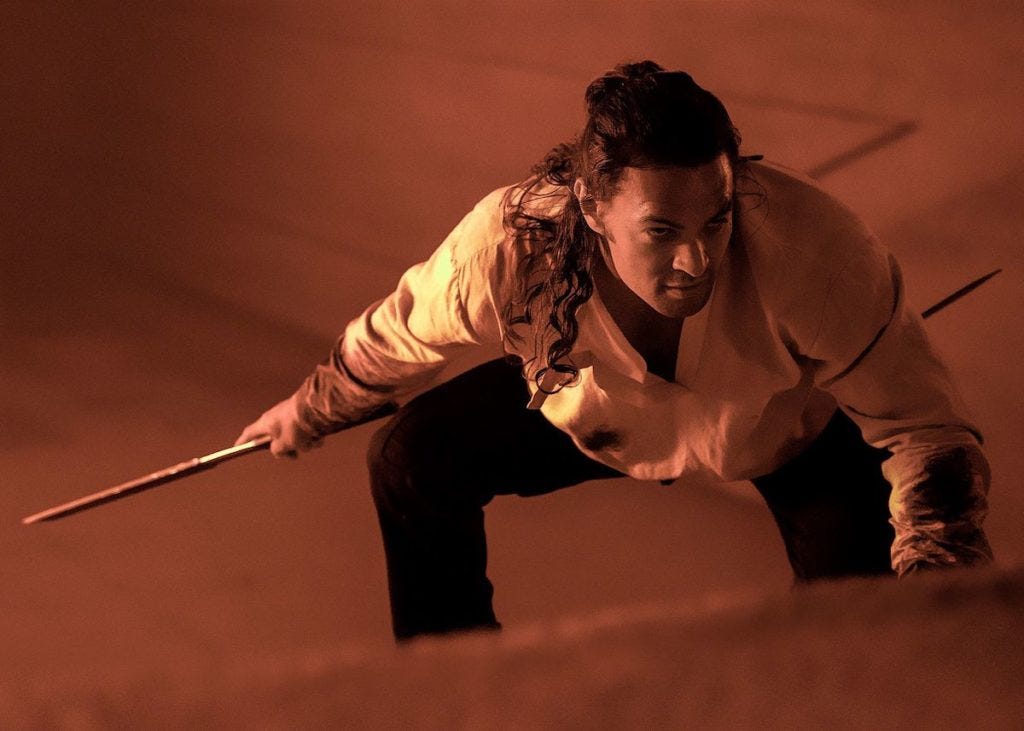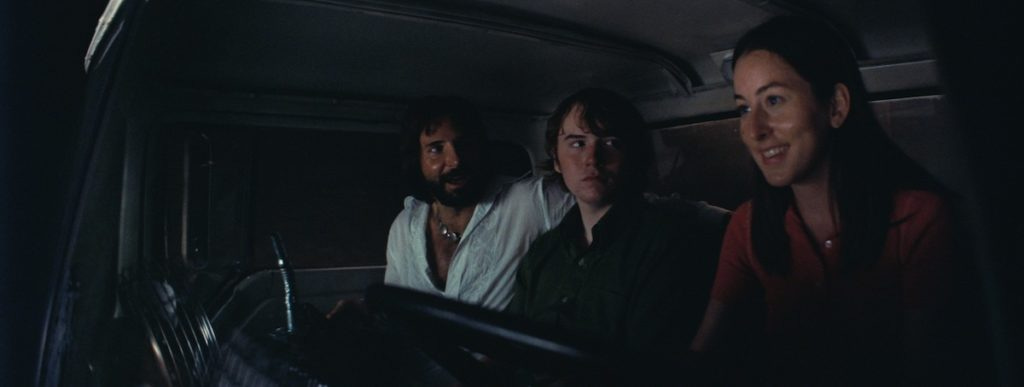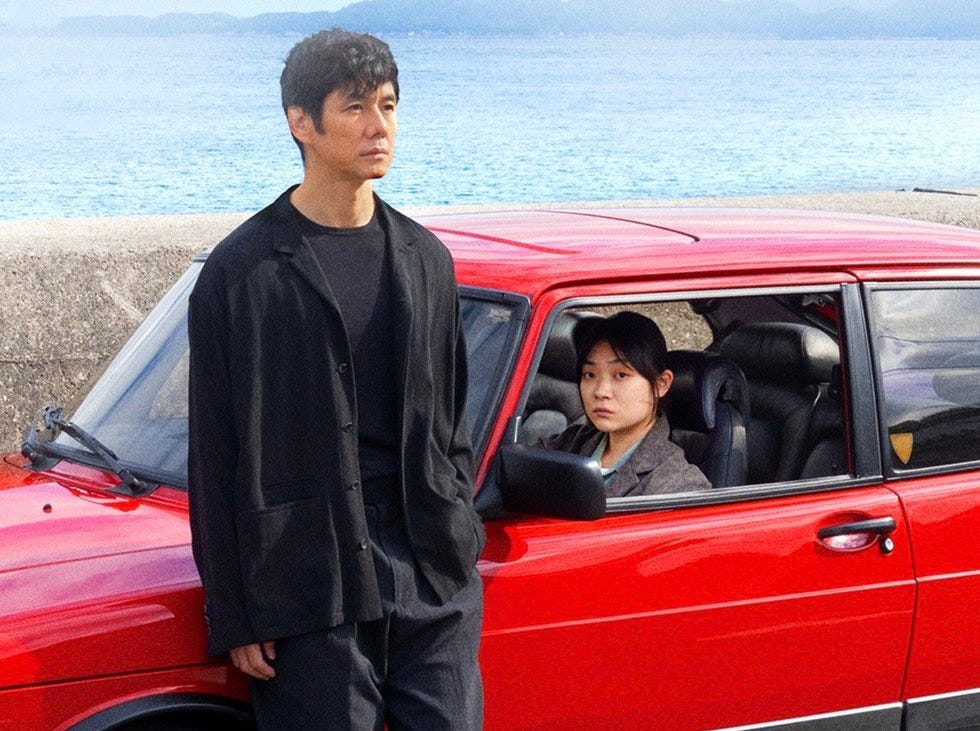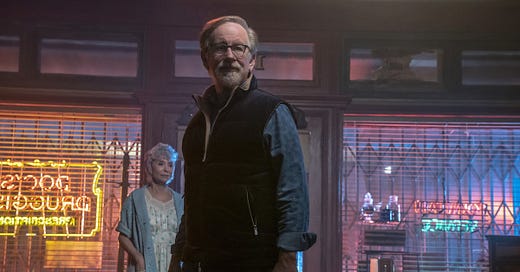
The Best Picture Nominees: A Retrospective
Viewings after The Discourse has cycled through its phases.
Out of a potential overabundance of caution, I haven’t been inside a movie theater since the beginning of the pandemic. As a result, I’ve come very late to many of the most talked-about films of the past couple of years, and very late to the conversations that have revolved around them. In the case of the Year in Film, 2021, I just caught up with the last of this year’s Best Picture nominees, and I’m able to look back at the immediate impact they had on other critics and audiences with some perspective.
Now, thanks to the power of streaming, I was able to watch a few of the ten nominees at the same, or close to the same, time as everyone else. The first of these was Adam McKay’s Don’t Look Up, so I was able to experience in real time not only how bad that film is, but also the blowback from the filmmakers and some of the actors who appear in it, against the critics who called it out for being the unfunny, condescending, smugly self-righteous junk it is. According to McKay and producer David Sirota (who also shares a “Story By” credit with McKay), disliking Don’t Look Up is the equivalent of thinking climate change is neat, and very good. Ron Perlman, one of the film’s actors, called such criticism “sick and twisted,” which seems a bit much. Of course, it’s not necessary to have actually experienced Don’t Look Up to see through the nonsense inherent in McKay, Sirota, and Perlman’s defensiveness, but it is nice to see such behavior so well-matched in attitude by the film itself.
Don’t Look Up does share a distinction with roughly half of the other nominees: it is not the kind of film usually up for Best Picture. It is a comedy, after all (ostensibly). We’ll return to the unusual nominees in a bit. First, though, I’d like to focus on the ones you’d expect to be there.

Two of those—King Richard, directed by Reinaldo Marcus Green, and CODA, written and directed by Sian Heder—are the kind of film that gets nominated simply because they’re the kind of film that tends to get nominated. “Oscar bait” is what they call such pictures. This is not necessarily an indication of quality, good or bad, and indeed one of these is better than the other. But back when they were released, and I was on the outside looking in at the reactions to these films, and regardless of their very different subject matter, they seemed essentially the same: films about hardship that over the course of their respective narratives transformed into tales of uplift.
CODA was a hit at the Sundance Film Festival, and it’s exactly the sort of movie that tends to do well there. It’s about a teenage girl (Emilia Jones) who can hear, while the rest of her family—two parents and an older brother—are deaf. This family also runs a fishing business, and the father (Troy Kotsur) is regularly frustrated by the way the industry operates in their town. This is all quite specific, yet like so many Sundance success stories, CODA aggressively tamps down on that specificity, pleading with the audience to love it and to ignore its own individuality in favor of a kind of rote universality. This plays as phony to me. Contrast CODA with Sound of Metal, last year’s best picture nominee about a drummer who loses his hearing, a film that doesn’t ask the audience for anything but its attention. The more a film embraces what is not universal about its story, the less it feels like it’s pandering to anyone. This is true of the best scene in CODA, in which the deaf members of the girl’s family go to watch her sing in concert, and they can only react by picking up cues from the audience around them. This felt truly unique, and struck the chord the film should have been going after throughout.
King Richard, meanwhile, strikes me as both better and less interesting to talk about, which is a neat trick. It’s still pretty decent, though. The story of how Richard Williams (Will Smith) pushed his two daughters, Venus and Serena, to become unstoppable tennis champions does exactly what it says on the tin, but doing that well is nothing to sniff at.
Kenneth Branagh’s Belfast is something else again. Another festival darling (it won the People’s Choice Award at the Toronto International Film Festival, as you’d expect), it’s a semi-autobiographical (at least, I assume it is) story about a young boy (Jude Hill) from the titular Northern Ireland city, living through the Troubles in the late 60s. For all the praise Belfast has garnered, it has gathered a roughly equal amount of opprobrium. Going into it, even I, something of a Branagh apologist, expected the sap to run too thick for my taste. And I can certainly understand why anyone who lived through IRA terrorism in the ’60s, ’70s, and ’80s, would object to a potential romanticization of that time. However, the film I was most reminded of while watching Belfast was John Boorman’s Hope and Glory, which is about a young boy growing up in England during the Blitz and World War II. Now, I’m not saying Branagh’s film is as good as Boorman’s (for one thing, Branagh’s humor doesn’t have the edge Boorman’s has), but he’s playing the same game, and I see no problem with him taking a swing at it. Plus, I quite liked Belfast. I also heard some critics complain that the film was visually ugly, and while Belfastisn’t exactly eye-popping, that really doesn’t make much sense to me.
The last of the films you’d obviously expect to be nominated is Steven Spielberg’s remake of West Side Story. This is the one I feel bad about. Previously, I called myself a Kenneth Branagh apologist, but I’m not about to call myself a Spielberg apologist. There’s nothing to apologize for. I’d been looking forward to this film for, what, almost two years? And then, when it was finally released last December, I didn’t see it in the theater. On top of that, West Side Story was a notorious box office disaster. Because no one, including me, went to see it. So, I just sat back and watched it spiral down the drain, while other critics were either rapturous about it, or came away disappointed that it was a technical marvel, but otherwise passionless. Well, I found West Side Story to be filled with passion, in every frame. Spielberg’s staging of “America” alone is worth the price of admission (or, I guess, the monthly fee for your streaming service; it’s on Disney+ and HBO Max now), but is also indicative of the film as a whole: colorful, vibrant, and yes, technically world-class, but also evidence that making not just a musical, but this musical, was something Spielberg has had a driving, urgent, artistic ambition to fulfill for his entire career. If not for another film I’ll be talking about later, this would be my favorite film of the year. As the two films currently stand, they’re tied in my mind. That both of my favorite films from a given year are up for Best Picture is an unusual experience for me.

I will now dispense with Denis Villeneuve’s Dune. It’s fine. Though I’m rather mixed on Villeneuve in general, it brings me no joy to be so dismissive of the film, because it is certainly a visual achievement. But Dune is a film the reaction to which upon its initial release struck me as, in retrospect, appropriately mild. There has been a groundswell of positivity since then, and I do not begrudge anyone’s enthusiasm, since I don’t even dislike the movie. It’s just that my inability, after several attempts, to finish Frank Herbert’s novel has bled into my reaction to this movie: I find it all somewhat stultifying. I’d rather watch David Lynch’s misbegotten 1984 version, even though I think it’s a worse film. At least it has a noticeable personality.
The rest of the nominees are those that most people would regard as, at least as far as Oscar history is concerned, unusual. Though maybe not so much lately. The South Korean thriller Parasite won two years ago, after all. So these films, mixed with the ones already discussed, combine to make a rich stew.
First is Guillermo del Toro’s Nightmare Alley, a remake of Edmund Goulding’s 1947 film noir (or a fresh adaptation of William Lindsay Gresham’s 1946 novel, depending on how you choose to look at these things). Del Toro won Best Picture in 2017, for The Shape of Water, his worst film. My disdain for that picture concerned me, as by and large I’m a del Toro fan, and the accolades it received made me wonder if his worst instincts being rewarded would lead him down a bad road. On top of this is the fact that del Toro is a, to me, weirdly divisive figure in the critical community—for all the critics who are on board with his aesthetic, it seems an equal number regard him as a hack. I’m certainly on the side of the former, but one becomes anxious. That said, Nightmare Alley is very good (though I don’t think it would have been nominated if not for his previous success): flamboyant as always, aggressively Gothic, and with a blaring carny sensibility, which is catnip for me. Compared to the 1947 original, I have some questions, though. Bradley Cooper’s delivery of the last line makes complete sense, given the horror of the situation, but Tyrone Power’s cold acceptance hits harder. Either way, pick your poison. Both are terrific.
The last three films under consideration are among the most discussed, and divisive. Jane Campion’s The Power of the Dog was available on streaming much earlier than many of its competitors, though it still took me long enough to get around to it. The Western, which was praised early by a host of critics at TIFF, has recently come back into the news for reasons that have nothing to do with the film itself: first, because of Sam Elliott’s rather lunkheaded swipes at it during his interview with Marc Maron, and more recently due to Campion’s strange and ill-advised acceptance speech at the Critics Choice Awards. (Of all the places to try to scuttle your movie’s awards chances! Perhaps she thought no one would notice.) Regardless of what you, or I, think of those odd occurrences so long after the film’s release, I regard The Power of the Dog as one of the best of the year, and one that features a refreshing “actorly” performance from Benedict Cumberbatch, after years spent in the Marvel Universe. It’s filled with blunt imagery that puts the viewer in the story’s time and place, and narrative undercurrents that are so cleanly presented as to seem both part of the surface and subtextual. I’m not here to prognosticate about the Oscars, because who the hell needs that, but had it not been for Campion’s awards speech foolishness, The Power of the Dog might have walked away with the whole thing.

Yet it wasn’t my favorite of the year, or even that close. Along with West Side Story (and Joel Coen’s The Tragedy of Macbeth, a great film that unfortunately was left off this year’s roster), my most anticipated film of 2021 was Paul Thomas Anderson’s Licorice Pizza. And observing the reaction from a distance, I was a bit taken aback by how this initially beloved film became more and more controversial the more people were able to see it. I myself didn’t see it until very recently, so charges against the movie that it was, in a couple instances, racist against Asians (in a way that many of the critics making this point acknowledged was inadvertent on Anderson’s part, but so misjudged that, to them, this was a distinction without a difference) and that its age-gap romance (the young man, played by Cooper Hoffman, is 15, while the young woman, played by Alana Haim, is 25) suggests that the older character is, at best, a “groomer,” and at worst a literal pedophile. Stay off Twitter.
But in general, I get where these criticisms are coming from. I confess that, while not bothered by it, I was surprised by where the relationship between these characters winds up. Still, this light, funny, and gorgeously made period romance is so joyous that I wonder how so many people could be angry at it, or forget what it’s like to be young (or how young 25 is). The second controversy revolves around two scenes in which John Michael Higgins speaks English in a ridiculous and offensive Japanese accent. There’s no question who is meant to be risible here—it’s Higgins, not his Japanese wife (Yumi Mizui)—though there’s not much more to the scenes, or the joke, than that. But if the point is clear, how can it still be cloudy? Anderson is under fire because some in the audience won’t get it, I suppose: they think the accent, rather than the cluelessness, is what’s funny. But that portion of the audience never would have gotten it anyway, and the assumption that everyone else is laughing for the wrong reasons betrays a strange narcissism. All of this is a shame, finally, because Licorice Pizza is a wonderful movie otherwise, a film largely about romance and happiness now marred by an ugly and heated debate.

The least likely Best Picture nominee, which I just watched the other day, and which along with West Side Story is, for me, the best 2021 had to offer, is Ryusuke Hamaguchi’s Drive My Car. Based on a Haruki Murakami short story of the same name (as well as, to a lesser degree, another Murakami story called “Scheherazade”), the film deals with a distinguished theater actor named Kafuku (Hidetoshi Nishijima) who discovers that the wife he loves (Reika Kirishima) and who he believes loves him, has been unfaithful. Two years after her sudden death from a cerebral hemorrhage, he travels to Hiroshima to direct a multilingual stage production of Chekhov’s Uncle Vanya. The languages that will be used depend on the actors cast, and range from Japanese to Cantonese to Korean sign language. Over the course of the story, Kafuku will cast a young man (Masaki Okada), who he firmly believes was one of his wife’s lovers, as Vanya, and begin a platonic relationship with the female driver (Tōko Miura) assigned to him by the local theater company.
If I have one problem with Drive My Car, it’s that in my view it should have ended one scene earlier. The final scene is by no means bad, and reveals something important about the state of mind of a central character, but the one before it—a long scene of the stage production of Uncle Vanya central to the plot, and delivered mostly in Korean sign language by Lee Yoon-A (Park Yu-rim), in a monologue about suffering, God, and the afterlife—is simply one of the most gorgeous things I’ve seen on screen in years. It’s not just Chekhov, it’s Chekhov through Hamaguchi, and Hamaguchi through Yu-rim. It’s the power of art stacked upon itself, delivering an emotional realism as breathtaking and as cinematic as anything in West Side Story. So, not that anyone asked, those two are my films of the year.











